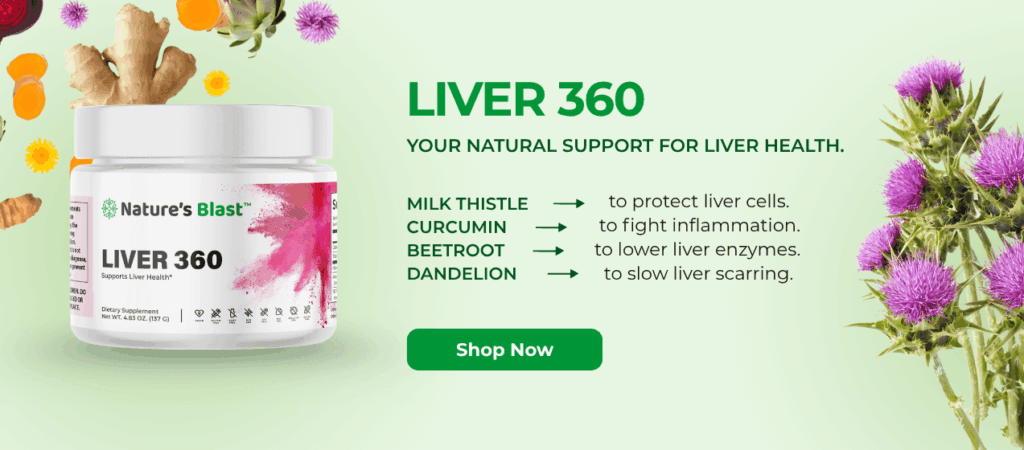Can Stress Cause Elevated Liver Enzymes? Understanding the Connection
Medically reviewed by our experts


Can stress cause elevated liver enzymes? This question has become more relevant as we learn about the strong connection between our mental and physical health. Liver enzymes play an important role in our body’s functions, and when their levels rise above normal, it may signal potential liver damage or other health issues. While many factors can affect these enzyme levels, the impact of stress on liver health is often overlooked.
What Are Liver Enzymes?
Liver enzymes are proteins that speed up chemical reactions within the liver. They help with breaking down foods, storing energy, removing toxins from the bloodstream, and making proteins needed for blood clotting.
The main liver enzymes tracked in blood tests include:
- ALT (alanine transaminase)
- AST (aspartate transaminase)
- ALP (alkaline phosphatase)
- GGT (gamma-glutamyl transferase).
These enzymes normally live inside liver cells. When liver cells are damaged, these enzymes leak into the bloodstream where they can be detected through blood tests. This is why high levels often point to liver problems. Your liver handles hundreds of tasks that keep your body working properly, and these enzymes are key players in making sure these jobs get done right.
What can cause high liver enzymes?

Many factors can lead to elevated liver enzymes. Liver diseases like hepatitis and fatty liver disease are common causes. Heavy alcohol use puts a lot of stress on the liver as it works to break down toxins, often resulting in higher enzyme levels. Some medications, including certain pain relievers and cholesterol drugs, may also raise enzyme levels as a side effect.
Other possible causes include:
- Obesity and poor diet choices
- Viral infections affecting the liver
- Autoimmune conditions
- Heart failure
- Thyroid problems
- Celiac disease
If you’re dealing with seasonal allergies, you might wonder about other health connections. While not directly related to liver enzymes, can allergies cause swollen lymph nodes is a question many people have when dealing with multiple symptoms.
What does it mean if your liver enzymes are high? It signals that something is affecting your liver’s normal function. While sometimes temporary, persistent high levels need attention as they may point to a more serious health issue that needs treatment.
Can Stress Cause Elevated Liver Enzymes?
Yes, stress can potentially cause elevated liver enzymes. When you face ongoing stress, your body releases stress hormones like cortisol and adrenaline. These hormones trigger changes that can affect liver function. Chronic stress reduces blood flow to the liver and changes how it processes fats and carbohydrates.
During stressful periods, the liver works harder to provide the body with energy to handle the perceived threat. This extra work can lead to inflammation and may cause liver enzymes to leak into the bloodstream. Research has found links between high stress levels and increased liver enzyme levels.
The stress-liver connection works both ways. Liver problems can make it harder for your body to clear stress hormones from your system, which may worsen anxiety and stress. This creates a cycle where stress harms the liver, and liver issues increase stress.
People with existing liver conditions like hepatitis C often report that stress makes their symptoms worse. Stress management becomes even more important for those with liver concerns.
Symptoms of Elevated Liver Enzymes

High liver enzymes often don’t cause noticeable symptoms by themselves. However, the underlying conditions causing the elevation may produce various signs. Paying attention to these symptoms and getting proper testing can help catch liver issues early. These can also be considered among the 10 signs your liver needs detoxing.
Fatigue and Weakness
When liver enzymes rise due to liver strain or damage, you might feel unusually tired or weak. This happens because your liver can’t process nutrients as well, leaving you with less energy. The liver helps convert food into fuel, and when it struggles, your energy levels drop.
Many people with high liver enzymes report feeling exhausted even after a full night’s sleep. This isn’t just normal tiredness but a deeper fatigue that doesn’t improve with rest. If you notice this kind of persistent fatigue, especially alongside other symptoms, it may be worth checking your liver health.
Jaundice
Jaundice is the yellowing of skin and the whites of the eyes. It happens when the liver can’t properly process bilirubin, a yellow pigment made during the normal breakdown of red blood cells. As bilirubin builds up in the blood, it causes the yellow color that we see.
This symptom often points to a more advanced liver issue and shouldn’t be ignored. It may show up along with dark urine and light-colored stool, which are also signs that the liver isn’t working as it should.
Abdominal Discomfort or Pain
The liver sits in the upper right part of your abdomen. When it becomes inflamed or enlarged due to conditions that raise enzyme levels, you might feel discomfort or pain in this area. This pain may range from mild to severe and might get worse after eating fatty foods.
Some people describe the sensation as a dull ache or feeling of fullness. The pain might spread to the back or right shoulder blade in some cases. If you notice persistent pain in this area, especially with other symptoms like fatigue or jaundice, it’s time to talk to a doctor.
Treatment Options for Elevated Liver Enzymes

Treatment for high liver enzymes focuses on addressing the underlying cause. Your healthcare provider will create a plan based on what’s causing the elevation and how high your levels are. Many people see improvements with some simple lifestyle changes.
Our liver has amazing healing powers. For those recovering from alcohol use, signs your liver is healing from alcohol
can be encouraging to watch for during the recovery process.
Lifestyle Changes
Diet plays a major role in liver health. Cutting back on processed foods, sugar, and saturated fats may reduce liver stress. Instead, focus on:
- Fresh fruits and vegetables
- Whole grains like brown rice and oats
- Lean proteins such as fish and chicken
- Healthy fats from sources like avocados and olive oil
Weight management also matters since excess fat can build up in the liver. Even losing 5-10% of your body weight can significantly lower liver enzymes if you’re overweight. For people looking for more structured support, a 7-Day Liver Cleanse Diet may help guide food choices while giving your liver a rest from heavy processing work.
Supporting your liver with the right liver detox supplements may help too. Liver 360 contains milk thistle, dandelion root, and other natural ingredients that may help protect liver cells and support detoxification processes. These plant-based ingredients have been used traditionally for liver support and may complement other lifestyle changes you’re making.

Regular Exercise
Physical activity can directly help lower liver enzyme levels. Just 30 minutes of moderate activity 3-5 times weekly can make a difference.
Activities to try include walking, swimming, cycling, or strength training. Even yoga and tai chi offer benefits, as they combine physical movement with stress reduction techniques. The key is finding activities you enjoy so you’ll stick with them long-term.
Medications
Sometimes lifestyle changes alone aren’t enough to bring liver enzymes back to normal. In these cases, medications may help treat the underlying cause. If hepatitis is causing the elevation, antiviral medications may be prescribed.
For autoimmune conditions affecting the liver, drugs that modify the immune response might be needed. Medications to reduce cholesterol, control blood sugar, or protect liver cells may also be options depending on what’s causing the enzyme elevation.
Always talk with your doctor before taking new medicines or supplements, as some can stress the liver. Never stop taking prescribed medications without medical guidance.
Relaxation Techniques
Since stress can potentially cause elevated liver enzymes, using specific relaxation methods can be an important part of your treatment plan. Here are three effective techniques you can try today:
Mindful Meditation
- Find a quiet space and sit comfortably
- Set a timer for 5-10 minutes
- Close your eyes and focus on your natural breathing
- When thoughts arise, notice them without judgment
- Gently return focus to your breath each time
4-2-6 Deep Breathing
- Sit or lie down in a comfortable position
- Place one hand on your chest and one on your stomach
- Breathe in through your nose for 4 counts (feel stomach rise)
- Hold your breath for 2 counts
- Exhale slowly through mouth for 6 counts
- Repeat for 5 minutes daily
Progressive Muscle Relaxation
- Start with your feet and work upward
- Tense each muscle group firmly for 5 seconds
- Release completely and notice the relaxation feeling
- Move to the next muscle group
- Practice the full-body sequence before bed
Finding time for enjoyable activities like reading, gardening, or spending time with friends can also help take your mind off stressors and may support overall liver health.
Conclusion
Can stress cause elevated liver enzymes? The evidence suggests a clear connection between chronic stress and liver health. While many factors can lead to high liver enzymes, managing stress should be part of your overall liver health strategy.
If you’re concerned about your liver enzymes, speak with a healthcare provider who can help determine the cause and create a treatment plan. Simple lifestyle changes like improving your diet, exercising regularly, and practicing stress management can make a big difference.
For allergy-related swollen lymph nodes, try over-the-counter antihistamines, warm compresses, and plenty of fluids. See a doctor if swelling persists beyond a week or comes with fever or severe pain.
Yes, allergic reactions can cause lymph nodes to swell as your immune system responds to allergens. This happens as your body fights what it perceives as harmful substances entering your system.
Mold exposure may cause swollen lymph nodes in some people, especially those with mold allergies or sensitivities. The immune response to mold spores can trigger inflammation throughout the lymphatic system.
FAQ
References


